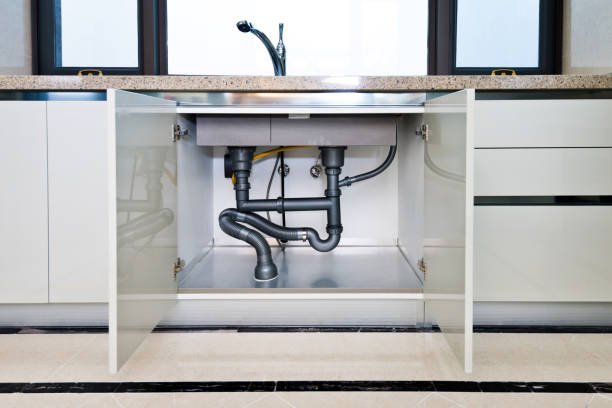When it comes to your home’s plumbing system, staying proactive can save you from unexpected headaches down the line. Imagine having the peace of mind that comes with knowing you’re taking the necessary steps to avoid potential disasters. By heeding the advice of seasoned service professionals, you can equip yourself with the knowledge and tools to tackle common plumbing issues before they escalate. So, why not take a moment to explore these expert tips and safeguard your plumbing system for the future?
Importance of Regular Inspections
Regular inspections are crucial for ensuring the longevity and functionality of your plumbing system. By conducting routine checks, you can catch potential issues early before they escalate into major problems. Checking for leaks, drips, or unusual noises can help you identify issues with your plumbing system promptly. These inspections not only save you money in the long run but also prevent water damage to your property.
During these inspections, it’s essential to examine visible pipes for any signs of corrosion or damage. Additionally, checking the water pressure and drainage flow can give you insights into the overall health of your plumbing system. Being proactive in scheduling regular inspections with a professional plumber can help you address any minor concerns before they turn into costly repairs.
Ultimately, regular inspections provide peace of mind knowing that your plumbing system is in good working condition. By staying vigilant and proactive, you can maintain the efficiency and reliability of your plumbing system for years to come.
Key Areas to Focus On
To ensure the proper maintenance of your plumbing system, focus on key areas that are critical for its longevity and functionality. Start by checking the water pressure in your home regularly. High water pressure can strain your pipes, leading to leaks or bursts. You can use a pressure gauge to ensure the pressure stays within the recommended range. Additionally, pay attention to your drains. Clogged drains can cause backups and damage your plumbing system. Use drain strainers to prevent hair, food particles, and other debris from clogging your pipes. Inspect your water heater for any signs of leaks, rust, or unusual noises. Flushing the tank annually can help prevent sediment buildup and maintain its efficiency. Lastly, don’t forget about your faucets and fixtures. Check for any leaks and repair them promptly to save water and prevent water damage. By focusing on these key areas, you can keep your plumbing system in top shape and avoid costly repairs.
DIY Maintenance Techniques
If you’re looking to maintain your plumbing system on your own, implementing simple DIY techniques can help prevent issues and keep everything running smoothly. One effective DIY maintenance technique is to regularly check for leaks in your faucets, toilets, and under sinks. Fixing these leaks promptly can save you from costly water damage and high utility bills. Additionally, insulating your pipes can prevent them from freezing during colder months, avoiding potential bursts and water damage.
Another important DIY maintenance tip is to monitor your water pressure. High water pressure can strain your pipes and appliances, leading to leaks or damage. You can use a pressure gauge to ensure your water pressure stays within the recommended range. Furthermore, periodically flushing your water heater can remove sediment buildup, improving its efficiency and prolonging its lifespan. Lastly, being mindful of what you’re putting down your drains can prevent clogs and plumbing backups. Implementing these simple DIY techniques can help you maintain a healthy plumbing system and avoid unexpected issues.


